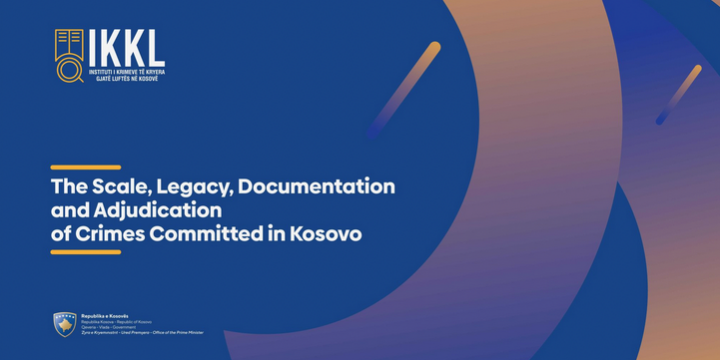Mass graves are a salient legacy of the Balkan wars – Kosovo1 is no exception to this. Indeed, the legacy of mass graves, as potential evidence of committed atrocities, continues to have a lasting impact on Kosovo society, especially on the families who have lost loved ones.
Mass graves are sites where multiple perspectives converge, including humanitarian, forensic, legal, international, historical, cultural, social and, above all, acutely personal ones. But the legacy of conflicts, including the scale, nature and magnitude of violations committed, has also political implications with the potential to jeopardise justice and long-lasting peace. It is this context that motivated the Institute of Crimes Committed During the War in Kosovo (ICCW) to put out a call for contributions that investigate, analyse and speak to the scale and nature of the crimes committed; their legacy and lasting effect; documentation efforts and adjudication measures in place.
A trio consisting of MaGPIE scholars Diego Nunez (data researcher), Melanie Klinkner (Project lead), and Kosovo specialist Stephanie Schwandner-Sievers teamed up to collaborate on a contribution highlighting and contextualising what open-source mapping reveals in relation to publicly available information on mass graves in Kosovo. Although unforeseen circumstances prevented us from travelling to Prishtina in person, the organisers kindly showed our pre-recorded contribution during the international conference held on 17-19th February 2025.
The conference presented a platform for scholarly examination and debate in relation to the following thematic sessions:
🔹 War Crimes Committed in Kosovo – Analyzing the nature, scale, and documented impact of these crimes.
🔹 Documentation and Investigation of War Crimes – Addressing essential processes for establishing truth and ensuring accountability.
🔹 Legal and Political Challenges in Addressing War Crimes – Exploring the legal and policy frameworks required for effective justice.
Below is a snapshot of one of our slides displayed during the pre-recorded presentation. It demonstrates how we have visualised the data in a map.
 Caption: MaGPIE data slide; photo by courtesy of the ICCW.
Caption: MaGPIE data slide; photo by courtesy of the ICCW.
In Kosovo, more than 25 years after the war, the publicly available evidence available suggests that only a relatively small portion of such graves has been fully excavated and investigated. The findings highlight a paucity in clear, accessible and, above all, systematic information on mass graves in Kosovo. Moreover, our data reveals patterns in the way mass graves were created and subsequently engaged with by authorities, highlighting areas where renewed efforts for further information would be beneficial. Our analysis also raises questions as to a lack of progress in the continued efforts to resolve missing persons cases in the region. This has become topical again with a renewed determination by Kosovo and Serbia espoused in a joint 2023 Declaration.
We welcome the opportunity to work with the Institute to bring critical data analysis to policy making and are looking forward to further avenues of ensuring that – wherever possible – information on and from mass graves can assist in bringing peace and justice to survivors.
[1] We use the term ‘Kosovo’ in accordance with the international diplomatic recognition it enjoys as a sovereign state by a majority of governments world-wide, in knowledge of the facts that (i) Kosovo’s national independence, declared in 2008, remains unacknowledged by Serbia, Russia, and many others and (ii) ‘Kosova’ is the term normally used by the country’s majority Albanian language speakers.







